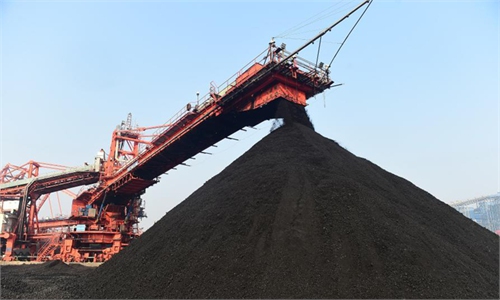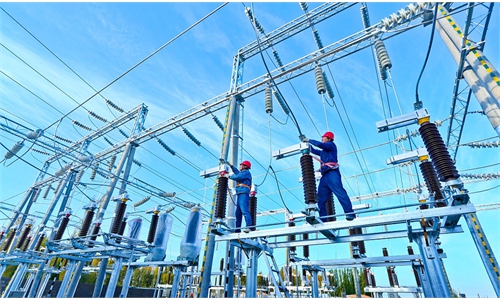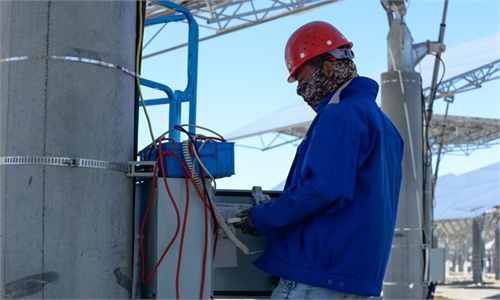
coal Photo:VCG
China's top economic planner issued a notice on Tuesday to further deepen the market-oriented reform for the on-grid price of coal-fired power generation amid the country's recent power crunch.
The notice, issued by the National Development and Reform Commission (NDRC), details the implementation of four significant measures for the reform.
NDRC will orderly liberalize the on-grid price of coal-fired power generation, with all coal-fired power entering the market and the on-grid price being formed within the range of "base price plus fluctuation" through market transaction.
Meanwhile, the NDRC announced an expansion of fluctuation limits for the coal-fired power trading price to 20 percent from a previous 10 percent rise and 15 percent fall, but the market transaction price of energy-intensive enterprises is not subject to the 20 percent rise.
Wu Chenhui, an independent industry analyst, told the Global Times that relaxing the power trading price fluctuation range would alleviate the current power crunch to some extent, as it would give electricity companies more leeway to adjust prices in the face of surging coal costs.
"It is also an effective method for targeting companies with excessive power usage by pressing them to use power more efficiently," Wu noted.
With 70 percent of all electricity generated in China already connected to the electricity market, following the expansion of the fluctuation limit and market mechanism of "base price plus fluctuation," the trading prices of coal-fired power generation in some local power markets have risen, which has played a positive role in alleviating the operating difficulties of coal-fired power generation companies, Peng Shaozong, an official from NDRC said at a press briefing on Tuesday.
As energy-intensive enterprises are not subject to the 20 percent rise, the measure will help guide energy-intensive enterprises to curb unreasonable power consumption while promoting the transformation and upgrading of the industrial structure of these enterprises, Wan Jinsong, director of NDRC's Department of Price said on Tuesday.
Equally, the reform may come as a blow to certain companies as they will face increasing operational costs, especially the high energy consuming firms as they are very sensitive to power price changes.
For example, for many aluminum companies, power costs account for nearly 30-50 percent of their operation overheads, while their profit margin is very thin. Therefore, their business will face quite some blow from the power price adjustment, Wu said.
The notice expresses that the NDRC will promote industrial and commercial users to enter the market and cancel the price of electricity sold through industrial and commercial catalogs while maintaining stable electricity prices for residual uses, agriculture, and public welfare programs.
The notice also stressed the importance of implementing measures to ensure successful reform, as NDRC will promote the construction of a sustainable electricity market, strengthen the connection with the peak pricing and off-peak tiered pricing for electricity, while avoiding unreasonable administrative intervention and strengthening oversight of the coal and power market.
Moreover, Peng noted that this reform will not directly affect the country's consumer price index (CPI) but has a certain boosting effect on the industrial producer price index (PPI), which is conducive to maintain price stability.
Global Times



